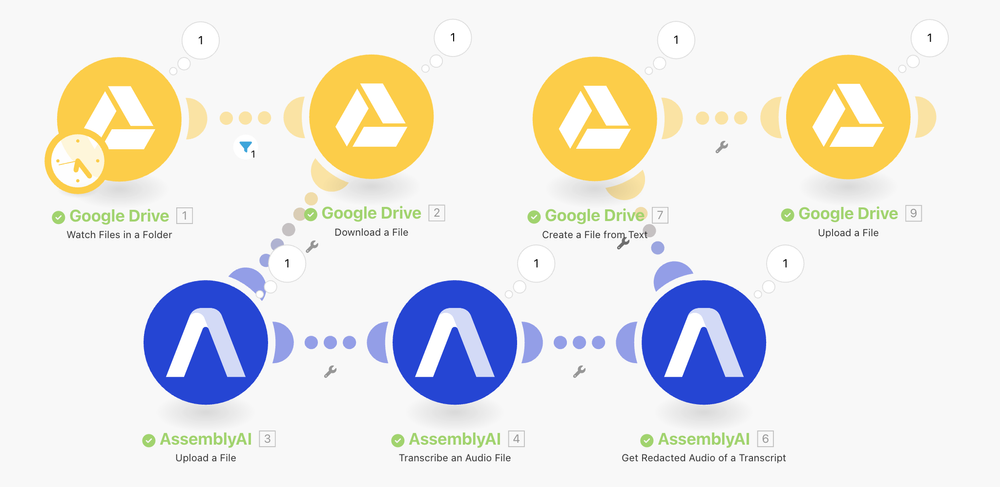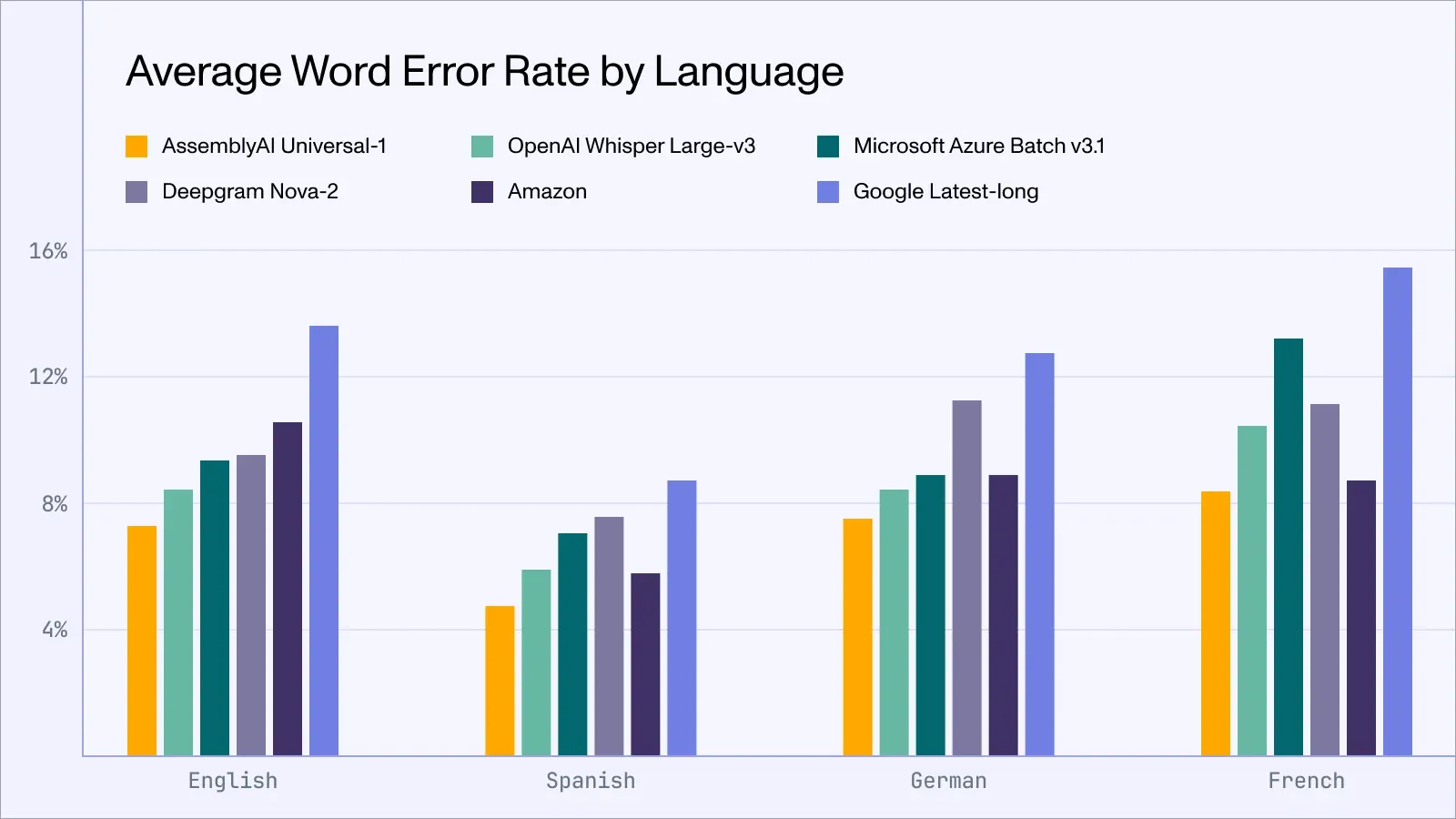1
New codec support; account deletion support
We’ve upgraded our transcoding library and now support the following new codecs:
Bonk,APAC,Mi-SC4,100i,VQC,FTR PHM,WBMP,XMD ADPCM,WADY DPCM,CBD2 DPCMHEVC,VP9,AV1codec in enhancedflvformat
Users can now delete their accounts by selecting the Delete account option on the Account page of their AssemblyAI Dashboards.
Users will now receive a 400 error when using an invalid tier and language code combination, with an error message such as The selected language_code is supported by the following speech_models: best, conformer-2. See https://www.assemblyai.com/docs/concepts/supported-languages..
We’ve fixed an issue in which nested JSON responses from LeMUR would cause Invalid LLM response, unable to fulfill request. Please try again. errors.
We’ve fixed a bug in which very long files would sometimes fail to transcribe, leading to timeout errors.

